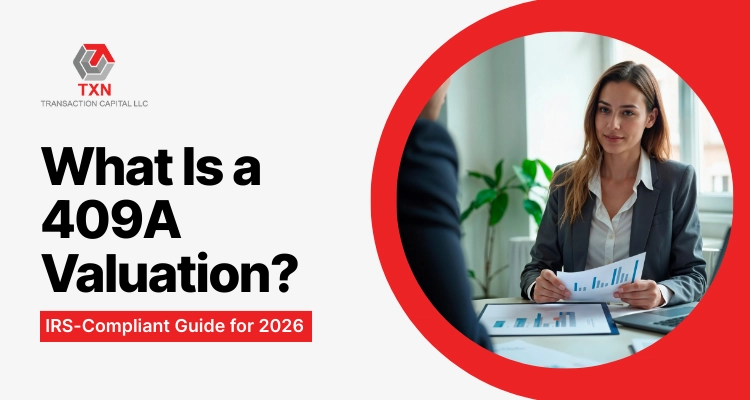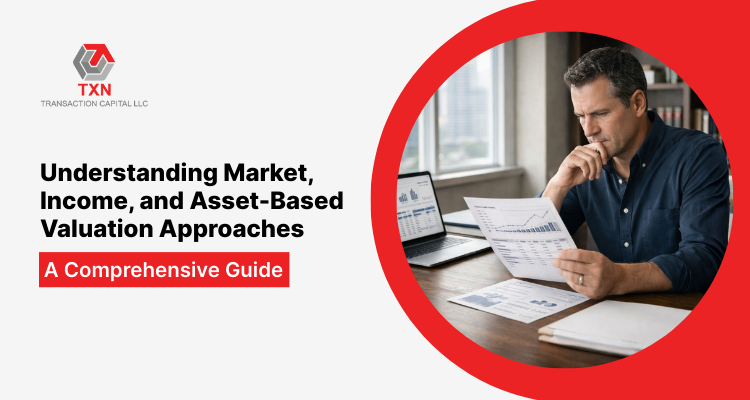How to Avoid Capital Gains Tax When Selling a Business or Property

Selling your business or investment property should be a celebration of your hard work and smart investments. Instead, many entrepreneurs and property owners face an unwelcome surprise: massive capital gains tax bills that can consume 20-37% of their profits.
The good news? With proper tax planning and strategic structuring, you can significantly reduce—or even eliminate—your capital gains tax liability.
This comprehensive guide reveals 11 proven methods to protect your wealth when selling high-value assets.
What Is Capital Gains Tax and Why Does It Matter?
Capital gains tax represents the federal and state taxes imposed on profits from selling capital assets—including businesses, real estate, stocks, and other investments.
Here's the simple calculation:
Capital Gain = Final Sale Price - Adjusted Cost Basis
Your adjusted cost basis includes your original purchase price plus improvements, transaction costs, legal fees, and other qualifying expenses.
Understanding the Two Types of Capital Gains
Short-Term Capital Gains (Assets held under 12 months):
- Taxed as ordinary income
- Rates range from 10% to 37% based on your income bracket
- No preferential treatment
Long-Term Capital Gains (Assets held over 12 months):
- Preferential tax rates: 0%, 15%, or 20%
- Significantly lower than ordinary income rates
- Additional 3.8% Net Investment Income Tax for high earners
For Indian property investors: Long-term capital gains are taxed at 20% with indexation benefits or 12.5% without indexation for properties held over two years.
How Are Business and Property Sales Taxed by the IRS?
When you sell a business, the IRS doesn't treat it as a single transaction. Instead, they allocate the purchase price among different business components:
- Goodwill and intangible assets → Capital gains treatment
- Equipment and machinery → Depreciation recapture + capital gains
- Inventory and accounts receivable → Ordinary income
- Real estate → Capital gains (with potential depreciation recapture)
- Non-compete agreements → Ordinary income
11 Expert-Proven Strategies to Minimize Your Capital Gains Tax
1. Hold Your Assets Long Enough to Qualify for Lower Tax Rates
The difference between short-term and long-term capital gains rates is substantial. For high-income earners, holding an asset for just one additional day (to cross the 12-month threshold) can reduce taxes from 37% to 20%.
Pro tip: If you're approaching the one-year mark, consider delaying your sale by a few weeks to qualify for long-term rates.
2. Use Tax-Loss Harvesting to Offset Your Gains
Tax-loss harvesting involves strategically selling losing investments to offset your capital gains dollar-for-dollar.
Key benefits:
- Losses directly reduce taxable gains
- Excess losses offset up to $3,000 of ordinary income annually
- Unused losses carry forward indefinitely
- Works for both business and investment portfolios
3. Structure the Deal as an Installment Sale to Spread Tax Burden
An installment sale allows you to receive payments over multiple years instead of a lump sum, spreading your capital gains across several tax years.
Benefits include::
- Lower overall tax rates by staying in lower brackets
- Improved cash flow management
- Reduced risk of triggering Net Investment Income Tax
- Interest income on deferred payments
Common applications:
- Owner-financed business sales
- Real estate transactions
- Family succession planning
4. Take Advantage of QSBS to Eliminate Up to 100% of Capital Gains
Qualified Small Business Stock (QSBS) under Section 1202 offers the most powerful capital gains exclusion available—up to $10 million or 10x your basis.
QSBS requirements:
- C-Corporation structure
- Gross assets under $50 million when stock was issued
- Five-year minimum holding period
- Active U.S. trade or business
- Qualifying industry (excludes professional services, hospitality, finance)
5. Use 1031 Exchanges to Defer Real Estate Taxes Indefinitely
Like-kind exchanges under Section 1031 allow real estate investors to defer capital gains by reinvesting proceeds into similar properties.
Critical timing requirements:
- Identify replacement property within 45 days
- Complete purchase within 180 days
- Use qualified intermediary
- Reinvest equal or greater value
Advanced strategies:
- Delaware Statutory Trusts (DSTs) for fractional ownership
- Improvement exchanges for property renovations
- Reverse exchanges for timing flexibility
6. Reinvest in Opportunity Zones for Triple Tax Benefits
Opportunity Zone investments offer unprecedented tax advantages for capital gains reinvestment:
Three-tier benefit structure:
- Defer capital gains tax until 2026
- Reduce original gains by 10% if held 5+ years
- Eliminate all new gains if held 10+ years
Investment requirements:
- Reinvest gains within 180 days
- Invest through Qualified Opportunity Fund (QOF)
- Target distressed communities nationwide
7. Sell to Employees Through an ESOP to Defer Taxes
Employee Stock Ownership Plans (ESOPs) provide unique tax benefits for C-Corporation owners under Section 1042.
Key advantages:
- Defer capital gains indefinitely by reinvesting in Qualified Replacement Property
- Maintain company culture and employee relationships
- Achieve smooth succession planning
- Potential estate tax benefits
Qualifying requirements:
- C-Corporation structure
- ESOP owns 30%+ of company stock
- Reinvest proceeds within 12 months
8. Use Charitable Remainder Trusts for Income While Eliminating Taxes
Charitable Remainder Trusts (CRTs) offer a sophisticated strategy combining tax elimination with retirement income.
Process overview:
- Transfer appreciated asset to irrevocable CRT
- Trust sells asset with no capital gains tax
- Trust invests proceeds and pays you income for life
- Remaining assets go to designated charity
- You receive immediate charitable tax deduction
Dual benefits:
- Eliminate or significantly reduce capital gains
- Generate steady retirement income stream
9. Accept Rollover Equity to Defer Tax Liability
When selling to private equity or strategic buyers, accepting equity in the new entity allows you to defer capital gains on that portion.
Structure benefits:
- Defer taxes until equity is eventually sold
- Participate in future company growth
- Maintain connection to business success
- Common in management buyouts and PE transactions
Typical allocations: 10-30% rollover equity in acquisition transactions.
10. Establish Non-Grantor Trusts to Eliminate State Capital Gains Taxes
Establishing trusts in no-income-tax states like Wyoming, South Dakota, or Nevada can eliminate state-level capital gains taxes.
Strategic applications:
- Shift income to favorable tax jurisdictions
- Utilize beneficiaries in lower tax brackets
- Multiple trusts for additional QSBS exemptions
- Multi-generational wealth transfer
Requirements:
- Professional trust administration in target state
- Legitimate business purpose beyond tax avoidance
- Proper state residency establishment
11. Use Strategic Gifting to Reduce Your Family's Overall Tax Burden
The annual gift tax exclusion ($19,000 per recipient) allows you to transfer appreciated assets to family members in lower tax brackets.
Gifting strategies:
- Transfer shares before major liquidity events
- Utilize lifetime gift tax exemption ($13.61 million)
- Gift to children's trusts for additional tax savings
- Time gifts with valuation discounts
Example: Gifting 10% of your business to children before a sale can save thousands in capital gains taxes.
What Special Tax Strategies Apply to Indian Property Sales?
For Indian property investors, several unique exemptions can minimize Long-Term Capital Gains (LTCG) tax on properties held for more than two years:
| Section | Strategy | Benefit |
|---|---|---|
| 54 | Reinvest in residential property | Full or partial exemption |
| 54EC | Invest in NHAI/REC bonds (within 6 months) | Exemption up to ₹50 lakh |
| 54F | Reinvest gains from other assets into residential property | Full exemption if entire sale proceeds reinvested |
| CGAS | Deposit gains temporarily in a Capital Gains Account | Maintain eligibility until reinvestment |
| Indexation | Adjust purchase price for inflation | Lower taxable gains |
Important Note: Most reinvestment strategies require completion within specific timeframes ranging from 6 months to 2 years. The Capital Gains Account Scheme (CGAS) allows temporary deposit of sale proceeds to maintain eligibility while searching for suitable reinvestment opportunities.
Why Professional Valuation and Tax Planning Matter
These strategies require precise execution, detailed documentation, and often independent valuation reports to withstand IRS scrutiny.
Why Choose Transaction Capital LLC?
- Trusted by Big 4 audit firms and Fortune 500 companies
- IRS-compliant 409A valuation reports starting at $500
- Post-valuation audit support at no additional cost
- Court-acceptable valuations for litigation purposes
- SEC-compliant reports for regulatory filings
Don't let poor tax planning rob you of your hard-earned wealth. Take control of your financial future with proven, IRS-compliant strategies that work.
Final Thoughts: Your Path to Tax-Efficient Wealth Building
Capital gains tax doesn't have to drain your wealth or diminish your financial achievements. Whether you're preparing to sell a startup, implementing succession planning, or liquidating investment property, success lies in structuring transactions properly, maintaining strict compliance, and implementing the right strategies at the optimal time.
The difference between a well-planned exit and an improvised sale can mean the difference between keeping 63% versus 83% of your proceeds—potentially hundreds of thousands or even millions of dollars in tax savings.
Let Transaction Capital LLC guide you through the complexities of capital gains planning with professional, personalized support tailored to your unique situation.
Comprehensive FAQ: 10 Essential Capital Gains Tax Questions Answered

Dr. Gaurav B.
Founder & Principal Valuer, Transaction Capital LLC
Specialist in IRS-Compliant 409A & Complex Valuation Matters
Dr. Gaurav B. is the Founder and Principal Valuer of Transaction Capital LLC, a valuation and financial advisory firm providing independent, standards-based valuation opinions for startups, growth-stage companies, and established enterprises.




